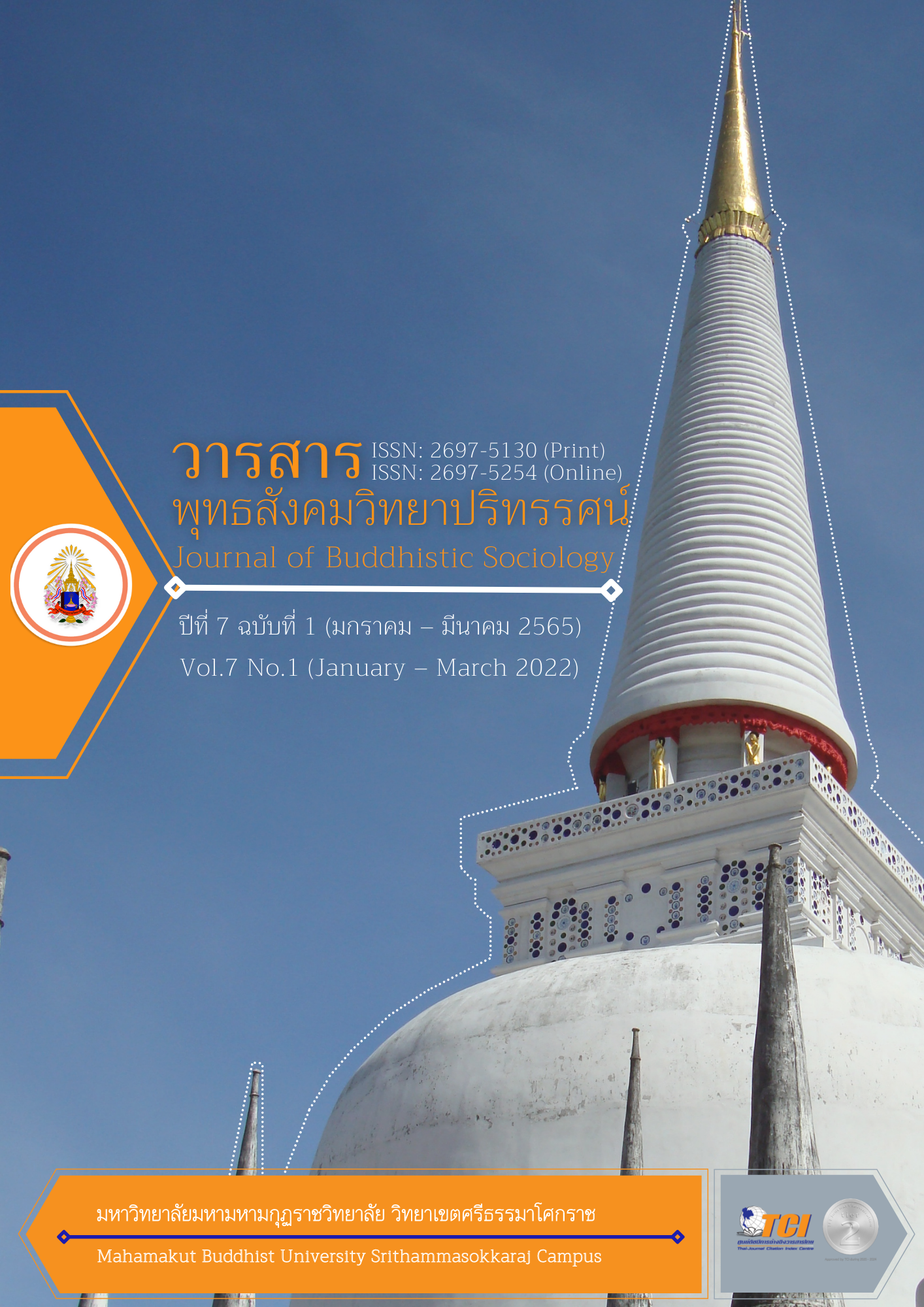ADMINISTRATORS’ ETHICAL LEADERSHIP AFFECTING DESIRED CHARACTERISTICS OF STUDENTS UNDER NAKHON SI THAMMARAT PRIMARY EDUCATIONAL SERVICE AREA OFFICE 4
Main Article Content
Abstract
The study aimed to study administrators' ethical leadership affecting the desired characteristics of students under Nakhon Si Thammarat Primary Educational Service Area Office 4. This research used a survey research model. The population used in this research was 1,437 teachers under Nakhon Si Thammarat Primary Educational Service Area Office 4. A simple group was selected from 304 teachers, and the research tools consisted of questionnaires and an interview form for development guidelines. The statistics used for data analysis were percentage, mean, standard deviation, and multiple regression analysis.
The results showed that:
1. overall, the ethical leadership of administrators was at the highest level. When considering each aspect, loyalty and good citizenship had the highest average, followed by honesty, and fairness had the lowest average. The desired characteristics of the students were generally at a high level. When considering each aspect, love nation, religion, and the monarchy had the highest average, followed by honesty and integrity. The aspect with the lowest average was seeking to know and living based on sufficiency.
2. The ethical leadership of administrators in honesty, responsibility, and good citizenship affected the desired characteristics of the students.
3. The guidelines for developing the ethical leadership of school administrators that affect students' desired characteristics in loyalty, fairness, honesty, responsibility, and good citizenship were as follows: the administrators should behave with care, be willing to work, respecting to the privacy of others, having fairness in the administration, performing duties with honesty and sincerity, giving priority to public interest over self-interest.
Article Details

This work is licensed under a Creative Commons Attribution-NonCommercial-NoDerivatives 4.0 International License.
References
ณัฐริดา นิพนธ์ และคณะ. (2563). ความสัมพันธ์ระหว่างภาวะผู้นำเชิงจริยธรรมกับบทบาทของผู้บริหารสถานศึกษาในการพัฒนาคุณลักษณะที่พึงประสงค์ของผู้เรียนในสถานศึกษา สังกัดสำนักงานเขตพื้นที่การศึกษาประถมศึกษานครสวรรค์ เขต 1. วารสารมหาจุฬานาครทรรศน์, 7(5), 158-159.
ธีรพัฒน์ เพชรศรีจันทร์. (2562). ภาวะผู้นำเชิงจริยธรรมของผู้บริหารสถานศึกษาที่ส่งผลต่อความผูกพันต่อองค์การของข้าราชการครูโรงเรียนประถมศึกษาของรัฐในจังหวัดอุทัยธานี. ใน วิทยานิพนธ์การบริหารการศึกษา. มหาวิทยาลัยราชภัฏนครปฐม.
พระอำนาจ อตฺถกาโม (น้อยนิล). (2554). การศึกษาคุณลักษณะอันพึงประสงค์ของนักเรียน โรงเรียนศึกษาสงเคราะห์บางกรวย อำเภอบางกรวย จังหวัดนนทบุรี. ใน วิทยานิพนธ์พุทธศาสตรมหาบัณฑิต. มหาวิทยาลัยมหาจุฬาลงกรณราชวิทยาลัย.
เพ็ญศิริ สมเรือ. (2558). ภาวะผู้นำเชิงจริยธรรมของผู้บริหารสถานศึกษา สังกัดสำนักงานเขตพื้นที่การศึกษาประถมศึกษา ตราด. ใน วิทยานิพนธ์การบริหารการศึกษา. มหาวิทยาลัยบูรพา.
ภาณุภัทร ลิ้มจารูญ. (2551). การพัฒนาชุดเครื่องมือวัดคุณลักษณะอันพึงประสงค์ของนักเรียนชั้นมัธยมศึกษาตอนต้น. ใน วิทยานิพนธ์ปริญญามหาบัณฑิต สาขาวิชาวัดและประเมินผลการศึกษา. จุฬาลงกรณ์มหาวิทยาลัย.
สำนักงานเขตพื้นที่การศึกษาประถมศึกษานครศรีธรรมราช เขต 4. (2563). แผนพัฒนาคุณภาพการศึกษา ประจำปีงบประมาณ พ.ศ. 2563 -2565 อำนาจหน้าที่สำนักงานเขตพื้นที่การศึกษาประถมศึกษานครศรีธรรมราช เขต 4. นครศรีธรรมราช: สำนักงานเขตพื้นที่การศึกษาประถมศึกษานครศรีธรรมราช เขต 4.
อาจอง ชุมสาย ณ อยุธยา. (2550). คุณธรรมนำความรู้ รูปแบบการเรียนการสอนแบบบูรณาการคุณค่าความเป็นมนุษย์. กรุงเทพมหานคร: สำนักงานมาตรฐานการศึกษาและพัฒนาการเรียนรู้: สำนักงานเลขาธิการสภาการศึกษา.
Kalshoven, K. et al. (2011). Ethical leadership at work questionnaire (ELW): Development and validation of a multidimensional measure. The Leadership uarterly, 22(1), 51-69.
Karianne Kalshoven. (2010). Ethical Leader Behavior and Big Five Factors of Personality. เรียกใช้เมื่อ 25 พฤศจิกายน 2564 จาก https://link.springer.com/article/10.1007/s10551-010-0685-9


